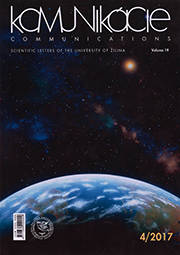The Ethical Aspect of Scientific Interest in Selected Physical Theories
The Ethical Aspect of Scientific Interest in Selected Physical Theories
Author(s): Marián Ambrozy, Michal Valčo, Suresh BhattaraiSubject(s): Ethics / Practical Philosophy, Philosophy of Science
Published by: Žilinská univerzita v Žilině
Keywords: robustness of the theory; support of research; theoretical physics; string theory; hysical vacuum theory;
Summary/Abstract: Mainstream physicists do not form a unified group of scientists sharing the same opinions. It is generally known that their opinions on the dispute regarding the very foundations of quantum mechanics between Einstein and Bohr still differ. Many renowned physicists defend Einstein's standpoint. However, the support of Bohr's assertions regarding quantum mechanics by various grant agencies and foundations is also very significant. The present paper compares the two physical theories. In their case, there is basically no correlation with empirical indicators. The paper points out the robustness of the theory of strings and the theory of physical vacuum. Physicists elaborated both of these theories on a theoretical basis and they both have strong mathematical bases. Moreover, the theory of physical vacuum can be described as remarkably mathematically elegant. Despite the fact that neither of the theories has yielded relevant empirical results they continue to benefit from the lavish support they get. Witten's string theory is widely supported by mainstream institutions which provide funding to research. As Peter Woit points out it is due to the fact that the string theory is the only game in town. It was born in western culture and the richest institutions found many excellent mathematical physicists who studied the same field. The theory of physical vacuum is equally far-reaching. Its highly ambitious plan-geometrisation of the field using Einstein's method aims at developing a theory of field which would unify all hitherto physical interactions. Simultaneously, the theory introduces a new type of physical field, the so called primary torsion field, and extends the principle of the relativity theory. The theory, however, presents several erroneous results. Moreover, there are no empirical correlations and it has failed to achieve the success of theoretical predictions of the string theory. On the other hand, it receives almost no financial support from mainstream agencies and the number of scientists dealing with the theory is considerably lower. If this theory received as much financial support and scientific attention as the string theory, it would probably achieve the same empirical results. Financial resources and support from relevant institutions thus play a significant role in scientific research.
Journal: Komunikácie - vedecké listy Žilinskej univerzity v Žiline
- Issue Year: 19/2017
- Issue No: 4
- Page Range: 79-84
- Page Count: 6
- Language: English

